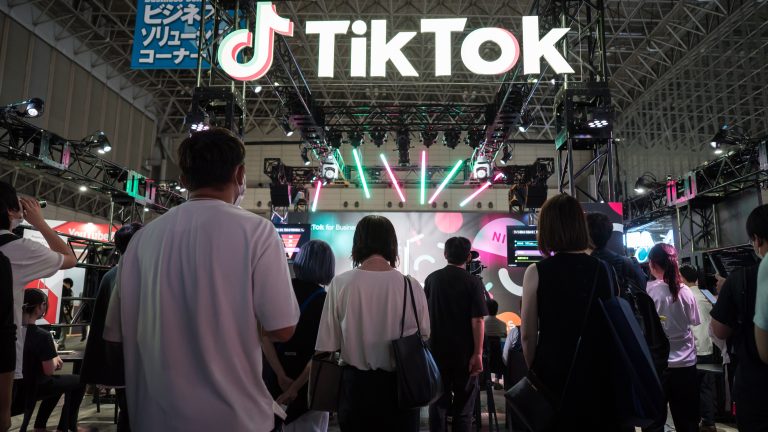India with No Nonsense stance had unceremoniously banned TikTok, why USA is worried?

TikTok was unceremoniously banned in India when PLA of Chinese Communist Oarty had attacked Indian Army personnel in Galwan area of Ladakh Sector.
The Chinese are in occupation of Indian territory in Ladakh since 1962 and were always looking to advance a bit more through salami slicing tactics.
No More Said India and put a full stop to whole thing. Though China has still to vacate not only occupied Indian territory but also entire Occupied Tibet which they had forcibly occupied by 1959.
So why are people in the United States worrying about losing access to the wildly-popular social media app, there are lessons they should learn from India and its people.
On Wednesday, the American Lower House or whatever they call it is going to pass a bill banning Tik Tok in the USA. While the Chinese-owned app is not disappearing from Americans’ phones anytime soon, many Americans seem to be deeply rattled. This is simply not understood or us it just Western media hype !!
As per Western Media Americans think that It is not possible to survive and thrive in a TikTok-less world. We’ll Indians just treat it out and no one misses it.
In June 2020, a violent clash on the Line of Actual Control between PLA and Indian Army in Ladakh Sector near India Tibet border had left 20 Indian soldiers dead. The PLA lost at least 40 Chinese as killed and another 40 as wounded, including their Regimental Commander and a Commanding Colonel. The government in New Delhi took this very seriously and among many actions banned the Tik Tok and several other well-known Chinese apps, unceremoniously.
“It’s important to remember that when India banned TikTok and multiple Chinese apps, the US was the first to praise the decision,” said Nikhil Pahwa, the Delhi-based founder of tech website MediaNama. “[Former] US Secretary of State Mike Pompeo had welcomed the ban, it showed India was a no nonsense state.
India’s decision was widely welcomed by the majority in the and only a few TikTok users were initially taken aback but realizing what China was upto, they had no complaints against the ban.
In the four years since, very few even remember the Web Site. It didn’t take long before other avenues for their creativity and commercial ventures sprang up.
Homegrown alternatives such as MX Taka Tak and Moj also began seeing a rise in popularity and an influx in funding.
“The ban on Tiktok led to the creation of a multibillion dollar opportunity … A 200 million user base needed somewhere to go,” said Pahwa, adding that many American tech companies too seized the moment with their new offerings.
In fact a ferocious fight ensued between US tech giants and domestic start-ups to fill the gap. Within a week of the ban, Meta-owned Instagram cashed in by launching an App Instagram Reels, in India. Google introduced its own short video offering, YouTube Shorts.
According to Ray, Indian content creators swiftly moved all the old content they had shot for TikTok to Instagram Reels and YouTube Shorts. “Some Influencers were uploading seven Reels a day and gaining four to five million subscribers a year,” he said.
But not everyone was able to build a significant following on these platforms.
What about safety?
US officials and lawmakers have long voiced concern that the Chinese government could compel TikTok’s parent Byte Dance to hand over data collected from American users.
Cybersecurity experts say that the national security concerns surrounding TikTok remain largely hypothetical. Indian experts, however, say its purge from national digital life hasn’t resulted in a safer space.
“I am not so sure removal of TikTok makes a dent in the cybersecurity threat landscape. Unless there is a step change in user awareness about the software on their phones, or what they download from the open internet, this is unlikely to change,” said Vivan Sharan, partner at Delhi-based tech policy consulting firm Koan Advisory Group.
US lawmakers also fear that the app could serve as a tool for Beijing to spread propaganda, misinformation or influence Americans. The removal of TikTok hasn’t insulated Indians from those threats.
“In terms of content and disinformation environment, it is plain to see we still have to grapple with serious issues like deep fakes, etc., with or without TikTok,” Sharan said. “So overall, it is hard to see which part of the risk-landscape changes significantly, assuming TikTok was certifiably problematic.”




